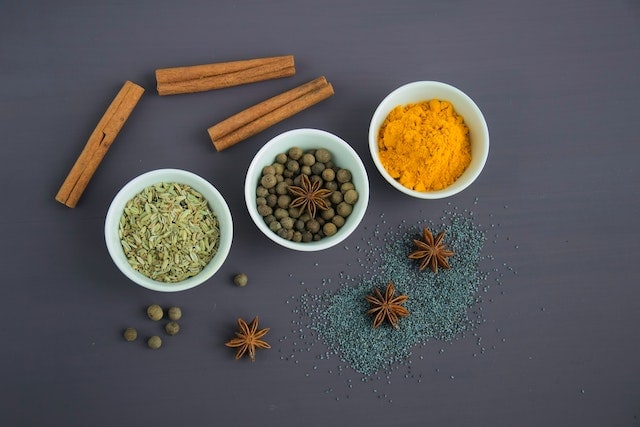Cinnamon is a popular spice used in many cultures for its distinct flavor and potential health benefits. However, there is a growing concern about its safety during pregnancy.
Some studies suggest that cinnamon may cause miscarriage or premature labor, while others claim that it is safe to consume in moderation.
Understanding the potential risks and benefits of cinnamon during pregnancy is important for expectant mothers and their healthcare providers. While cinnamon has been shown to have anti-inflammatory and antioxidant properties, it may also interact with certain medications and cause allergic reactions.
It is essential to weigh the potential risks and benefits of consuming cinnamon during pregnancy and make an informed decision based on individual circumstances.
Key Takeaways
- Cinnamon is a popular spice used for its flavor and potential health benefits, but its safety during pregnancy is a growing concern.
- Some studies suggest that cinnamon may cause miscarriage or premature labor, while others claim that it is safe to consume in moderation.
- Expectant mothers and their healthcare providers should weigh the potential risks and benefits of consuming cinnamon during pregnancy and make an informed decision based on individual circumstances.
Understanding Cinnamon
Cinnamon is a spice that comes from the bark of trees belonging to the Cinnamomum family. It has been used for centuries in cooking and traditional medicine.
Cinnamon is known for its sweet and warm flavor and is commonly used in desserts, baked goods, and hot beverages.
There are two main types of cinnamon: Ceylon cinnamon and Cassia cinnamon. Ceylon cinnamon, also known as “true cinnamon,” is native to Sri Lanka and has a milder flavor and lighter color than Cassia cinnamon.
Cassia cinnamon, on the other hand, is more commonly used and has a stronger flavor and darker color.
The active ingredient in cinnamon is cinnamaldehyde, which is responsible for its flavor and aroma. Cinnamaldehyde has been studied for its potential health benefits, including anti-inflammatory and antioxidant properties.
While cinnamon is generally considered safe for consumption in food and beverages, there have been concerns about its potential to cause miscarriage in pregnant women.
However, there is limited scientific evidence to support this claim, and more research is needed to determine the safety of cinnamon during pregnancy.
In summary, cinnamon is a popular spice with a sweet and warm flavor. There are two main types of cinnamon, Ceylon cinnamon and Cassia cinnamon, and the active ingredient in cinnamon is cinnamaldehyde.
While cinnamon is generally safe for consumption, more research is needed to determine its safety during pregnancy.
Health Benefits and Risks of Cinnamon
Cinnamon is a spice that has been used for centuries for its flavor and medicinal properties.
It is derived from the bark of trees belonging to the Cinnamomum genus. In recent years, cinnamon has gained popularity for its potential health benefits, but it is important to understand the risks as well.
Health Benefits
Cinnamon has been shown to have several health benefits, including:
- Anti-inflammatory properties: Cinnamon contains compounds that have anti-inflammatory effects, which may help reduce inflammation in the body.
- Antioxidant properties: Cinnamon is rich in antioxidants, which help protect the body from damage caused by free radicals.
- Blood sugar regulation: Cinnamon has been shown to help regulate blood sugar levels by improving insulin sensitivity.
- Immune system support: Cinnamon has antimicrobial properties that may help support the immune system.
- Heart health: Some studies have suggested that cinnamon may help improve heart health by reducing blood pressure and cholesterol levels.
Risks
While cinnamon has many potential health benefits, it is important to be aware of the risks as well. These include:
- Coumarin content: Cinnamon contains a compound called coumarin, which in high doses can cause liver damage and other health problems. However, the coumarin content of cinnamon varies depending on the type, with Ceylon cinnamon having much lower levels than Cassia cinnamon.
- Allergic reactions: Some people may be allergic to cinnamon, which can cause symptoms such as itching, swelling, and difficulty breathing.
- Aches and pains: In rare cases, cinnamon can cause aches and pains in the joints and muscles.
Overall, cinnamon can be a healthy addition to your diet when consumed in moderation. It is important to choose high-quality cinnamon and be aware of the risks associated with consuming too much of it.
Related topic Can Pregnant Women Eat Prosciutto?
Cinnamon and Pregnancy
Cinnamon is a popular spice that is used in various cuisines and traditional medicines. However, its safety during pregnancy is a topic of debate.
Some studies suggest that consuming large amounts of cinnamon during pregnancy may cause miscarriage or premature labor.
Pregnant women with gestational diabetes are often advised to consume cinnamon to regulate their blood sugar levels.
However, the American College of Obstetricians and Gynecologists (ACOG) recommends that pregnant women should not consume more than the usual amount of cinnamon used in cooking or baking.
Cinnamon is known to stimulate the uterus and may induce contractions. Therefore, it is advisable to avoid consuming cinnamon supplements or high doses of cinnamon during the first trimester of pregnancy.
Pregnant women who have had a previous cesarean section should also avoid consuming cinnamon supplements as it may increase the risk of uterine rupture.
In conclusion, while cinnamon is generally safe when consumed in moderation during pregnancy, pregnant women should avoid consuming cinnamon supplements or high doses of cinnamon.
It is always advisable to consult a healthcare provider before consuming any herbal supplements or making significant changes to one’s diet during pregnancy.
Cinnamon’s Potential Role in Miscarriage
Cinnamon is a spice that has been used for centuries for its flavor and medicinal properties. However, there is some concern that cinnamon may cause miscarriage in pregnant women.
There is limited scientific evidence to support the claim that cinnamon can cause miscarriage. Some animal studies have suggested that cinnamon may have abortifacient properties, but these studies have not been replicated in humans.
Despite the lack of scientific evidence, some traditional healers and alternative medicine practitioners recommend cinnamon as a natural way to induce abortion.
However, this practice is not supported by mainstream medical organizations and can be dangerous.
In addition to its potential role in miscarriage, cinnamon may also cause other adverse effects in pregnant women. Some women may experience heavy bleeding or pain during menstruation after consuming large amounts of cinnamon.
Overall, pregnant women should exercise caution when consuming cinnamon and consult with their healthcare provider before using it as a natural remedy.
It is important to note that cinnamon is generally considered safe in small amounts and is a common ingredient in many foods and beverages.
Cinnamon Supplements During Pregnancy
Cinnamon is a spice that is commonly used in cooking and is also available in the form of supplements and pills. Cinnamon has been used for centuries for its potential health benefits, including its ability to regulate blood sugar levels, reduce inflammation, and improve digestion.
However, the safety of cinnamon supplements during pregnancy is a topic of concern for many women.
There is limited research on the safety of cinnamon supplements during pregnancy. While cinnamon is generally considered safe when used in food amounts, the safety of taking cinnamon supplements during pregnancy is not well established.
It is always recommended to consult a doctor before taking any medication or supplements during pregnancy.
Cinnamon tea is a popular way to consume cinnamon during pregnancy. However, it is important to note that cinnamon tea may contain higher amounts of cinnamon compared to food amounts.
It is recommended to limit the consumption of cinnamon tea during pregnancy.
Cinnamon pills are another form of cinnamon supplements that are available in the market. It is important to note that the safety of cinnamon pills during pregnancy is not well established.
It is recommended to avoid taking cinnamon pills during pregnancy unless prescribed by a doctor.
In conclusion, the safety of cinnamon supplements during pregnancy is not well established. It is recommended to consult a doctor before taking any medication or supplements during pregnancy.
Cinnamon tea should be consumed in limited amounts, and cinnamon pills should be avoided unless prescribed by a doctor.
Safe Consumption of Cinnamon
Cinnamon is a popular spice that is often used in cooking and baking. While it is generally safe for consumption, there are concerns about its potential effects on pregnancy.
Some people believe that cinnamon can cause miscarriage, but there is little scientific evidence to support this claim.
It is generally safe for pregnant women to consume cinnamon in moderation. The American Pregnancy Association recommends that pregnant women limit their cinnamon intake to no more than one teaspoon per day.
This is because cinnamon contains a compound called coumarin, which can be harmful in large doses.
If you are pregnant and want to consume cinnamon, it is important to choose high-quality cinnamon that is free from contaminants. Look for cinnamon that is labeled as “Ceylon cinnamon” or “true cinnamon.” These types of cinnamon are lower in coumarin than other varieties.
It is also important to be mindful of the other foods and drinks that you consume that may contain cinnamon. Many baked goods, desserts, and beverages contain cinnamon, so be sure to read labels and ask questions if you are unsure about the ingredients.
Overall, cinnamon can be consumed safely during pregnancy in moderation. As with any food or beverage, it is important to be mindful of your intake and choose high-quality products.
If you have any concerns about consuming cinnamon during pregnancy, it is best to speak with your healthcare provider.
Cinnamon and Other Foods in Pregnancy
During pregnancy, many women are cautious about what they eat, as they want to ensure their baby’s health. Cinnamon is a spice that has been used for centuries for its medicinal properties and is commonly found in many foods and drinks.
However, there is a concern that cinnamon may cause miscarriage, and this has led to confusion among pregnant women.
While cinnamon is generally considered safe to consume during pregnancy, it is important to note that excessive consumption of cinnamon can be harmful.
Cinnamon contains coumarin, a compound that can cause liver damage if consumed in large amounts. Therefore, pregnant women should limit their intake of cinnamon to avoid any potential harm.
In addition to cinnamon, there are other foods that pregnant women should be cautious about. Some foods can cause infections or mouth sores, while others can be harmful to the developing baby.
For example, pregnant women should avoid consuming large amounts of caffeine, as it can increase the risk of miscarriage. Similarly, spicy foods can cause heartburn and discomfort, and should be consumed in moderation.
On the other hand, some foods are beneficial for pregnant women. Polyphenols, found in fruits and vegetables, can help protect against free radicals and reduce the risk of certain cancers. Pineapple, which contains bromelain, can help reduce inflammation and ease digestion.
It is also important to be aware of the risk of listeria, a type of bacteria that can cause miscarriage or stillbirth. Pregnant women should avoid consuming raw or undercooked meat, as well as soft cheeses and unpasteurized dairy products.
Overall, pregnant women should be mindful of what they eat and aim for a balanced diet that includes a variety of foods. While cinnamon is generally safe to consume in moderation, excessive consumption can be harmful. By following a healthy diet, pregnant women can help ensure the health of their baby.
Other Considerations and Precautions
While cinnamon has several potential health benefits, it is important to consider other factors before consuming it, especially during pregnancy.
Here are some precautions and considerations to keep in mind:
Allergic Reactions
Cinnamon can cause allergic reactions in some individuals. Symptoms can range from mild to severe and may include itching, swelling, and difficulty breathing. If you experience any of these symptoms after consuming cinnamon, seek medical attention immediately.
Heartburn
Cinnamon can also aggravate heartburn symptoms in some individuals. If you have a history of heartburn, it may be best to avoid consuming large amounts of cinnamon.
Breathing Problems
Cinnamon can cause breathing problems in some individuals, especially those with asthma. If you have asthma or any other respiratory condition, it is best to consult with your doctor before consuming cinnamon.
Health Conditions
Individuals with certain health conditions, such as liver disease or diabetes, should also exercise caution when consuming cinnamon. Cinnamon can interact with certain medications and may worsen symptoms in some individuals.
Sex
Cinnamon has been traditionally used as an aphrodisiac, but there is no scientific evidence to support this claim. It is important to note that consuming large amounts of cinnamon can lead to adverse effects, and it is best to consume it in moderation.
Antimicrobial Properties
Cinnamon has antimicrobial properties and can help fight off bacteria and viruses. However, it is important to note that cinnamon should not be used as a substitute for medical treatment.
Blood Sugar Control
Cinnamon has been shown to help regulate blood sugar levels in some individuals. However, it is important to consult with a doctor before consuming cinnamon for this purpose, especially if you have diabetes or are taking medication to regulate blood sugar levels.
Overall, while cinnamon has several potential health benefits, it is important to consider other factors before consuming it, especially during pregnancy. It is best to consume cinnamon in moderation and consult with a doctor if you have any concerns or pre-existing health conditions.
Related Posts:
Frequently Asked Questions
Can consuming large amounts of cinnamon harm a developing fetus?
There is not enough scientific evidence to suggest that consuming cinnamon in food amounts can cause harm to a developing fetus. However, consuming large amounts of cinnamon supplements or essential oils during pregnancy is not recommended.
Cinnamon contains coumarin, a substance that can cause liver damage and thin the blood, which can increase the risk of bleeding during pregnancy.
Is cinnamon oil safe to use during pregnancy?
Cinnamon oil should not be used during pregnancy as it can cause skin irritation and should not be ingested. Cinnamon oil is a concentrated form of cinnamon and can contain high levels of coumarin, which can be harmful to a developing fetus.
What are some common causes of miscarriage in early pregnancy?
Miscarriage in early pregnancy can occur due to a variety of reasons, including chromosomal abnormalities, hormonal imbalances, infections, and medical conditions such as diabetes or thyroid disorders.
Lifestyle factors such as smoking, alcohol consumption, and drug use can also increase the risk of miscarriage.
Are there any teas that should be avoided during pregnancy?
Some herbal teas should be avoided during pregnancy as they can cause uterine contractions or harm to the developing fetus. These include teas containing parsley, chamomile, and pennyroyal.
It is recommended to consult with a healthcare provider before consuming any herbal tea during pregnancy.
What are some foods and spices that should be avoided during pregnancy?
Certain foods and spices should be avoided during pregnancy to reduce the risk of harm to the developing fetus. These include raw or undercooked meat, fish with high levels of mercury, unpasteurized dairy products, and raw or undercooked eggs.
Spices such as nutmeg and mace should also be consumed in moderation as they contain compounds that can cause uterine contractions.
Can certain herbs or supplements cause harm to a developing fetus?
Some herbs and supplements can cause harm to a developing fetus and should be avoided during pregnancy. These include St. John’s Wort, echinacea, ginseng, and saw palmetto. It is recommended to consult with a healthcare provider before taking any herbal supplements during pregnancy.

Iesha is a loving mother of 2 beautiful children. She’s an active parent who enjoys indoor and outdoor adventures with her family. Her mission is to share practical and realistic parenting advice to help the parenting community becoming stronger.



